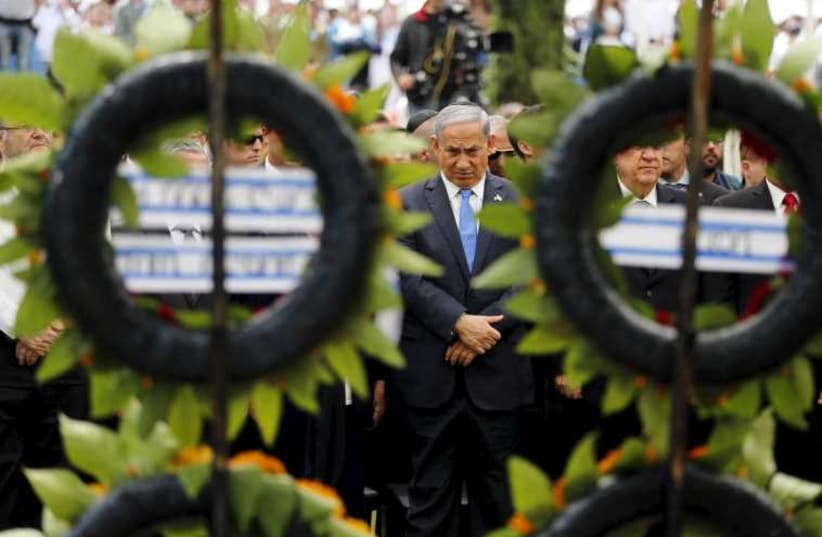
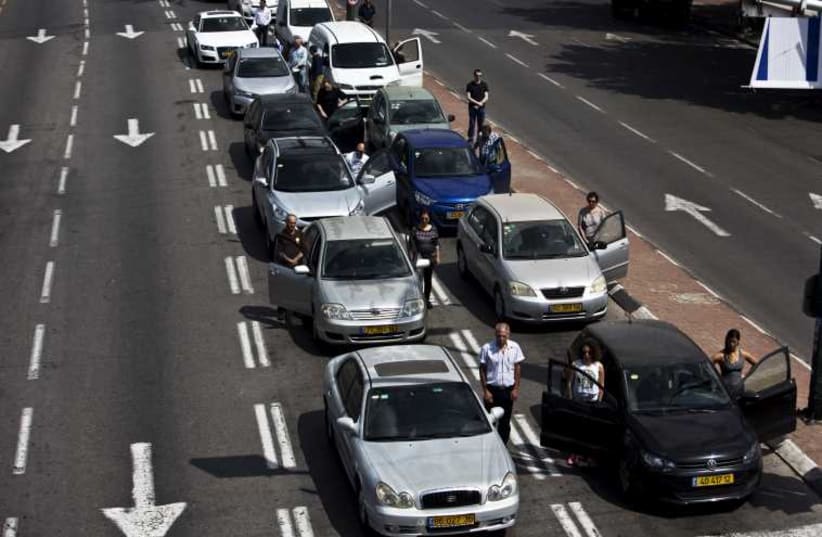
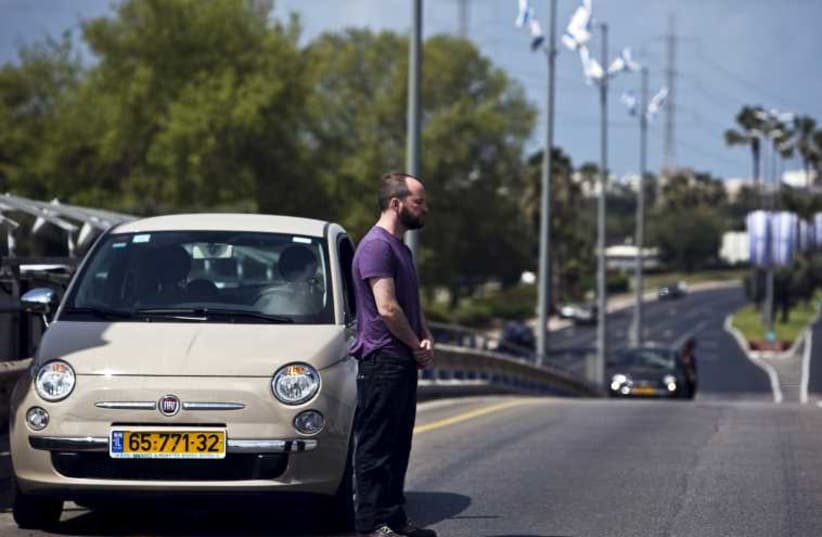
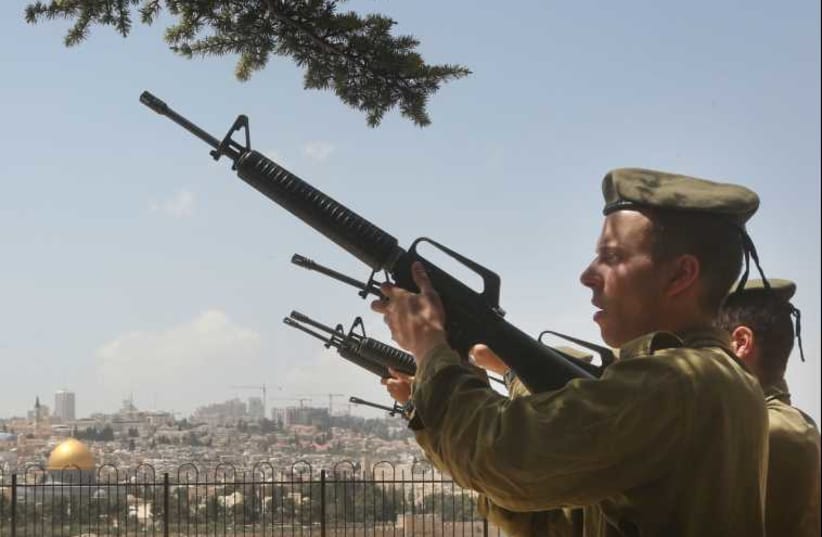
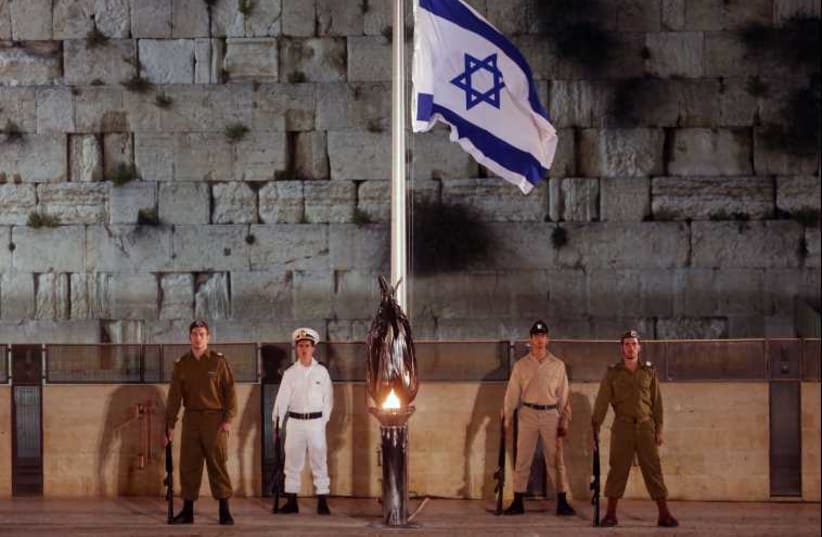
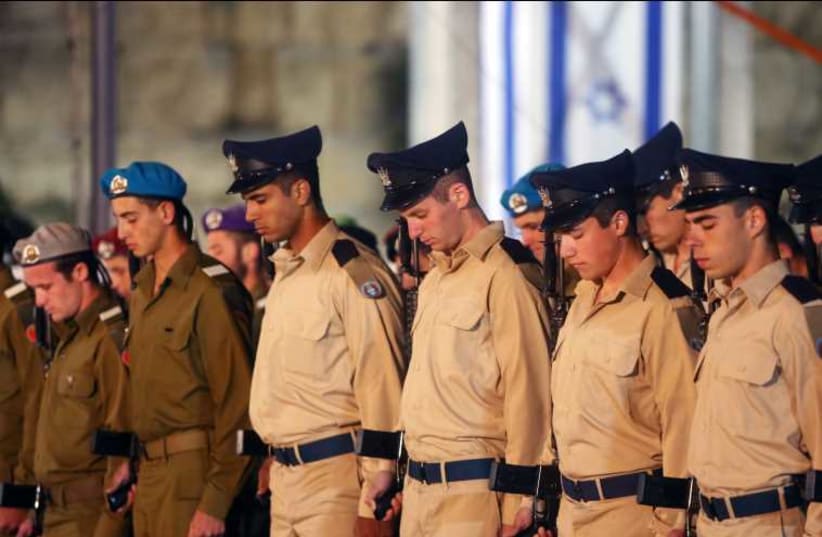
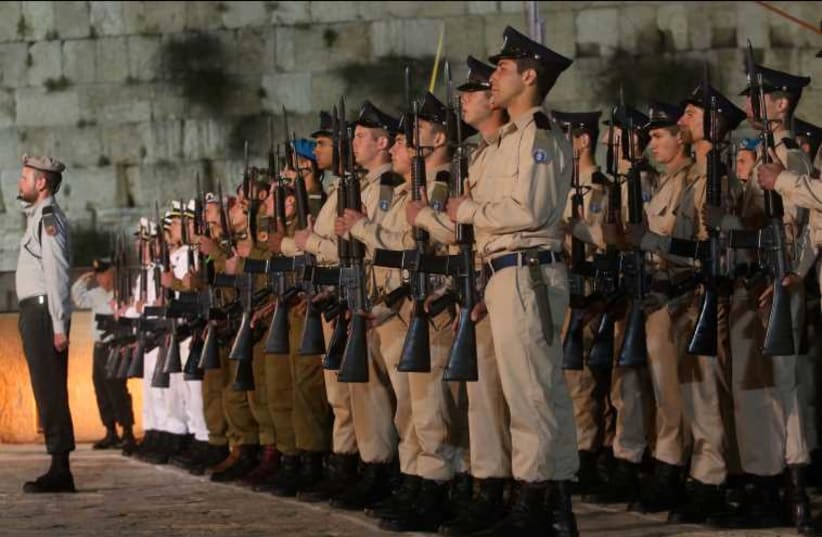
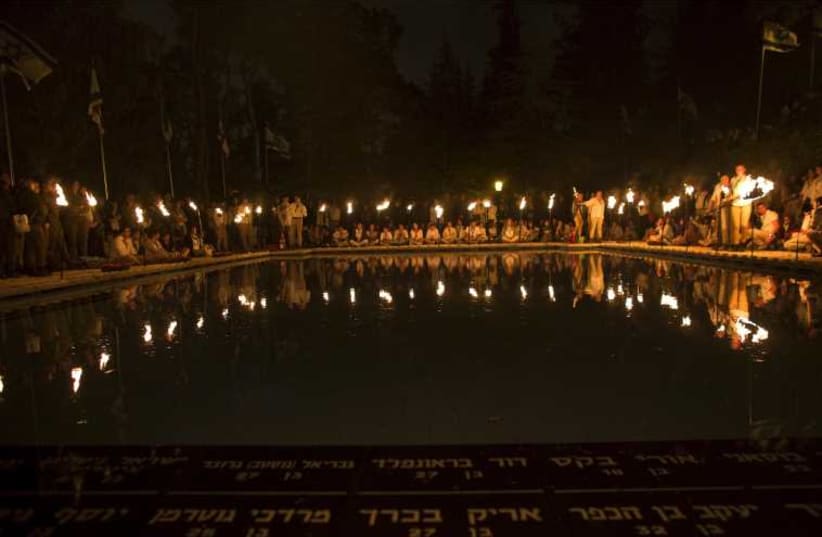
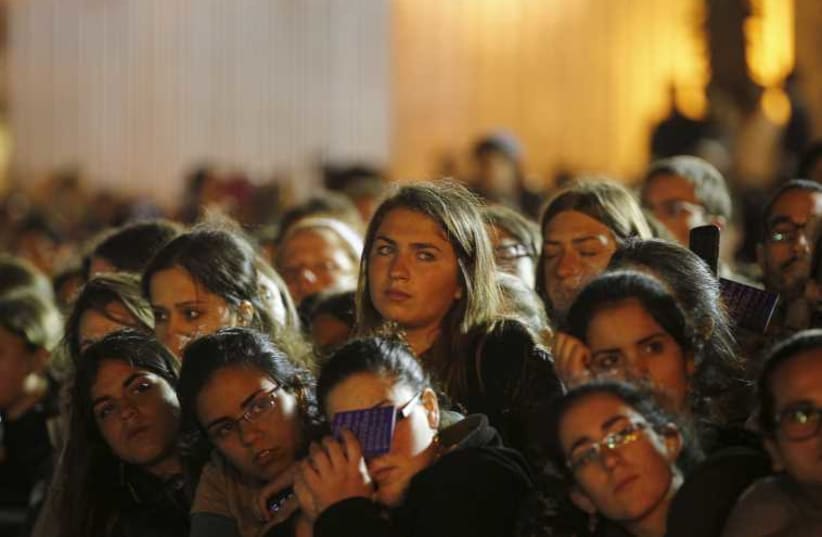

“If we have no choice, we must be ready to charge into battle in order to defend ourselves and our land,” Netanyahu said on Wednesday morning at Mt. Herzl Military Cemetery in Jerusalem.“When I need to decide whether or not to send soldiers into battle, I think of each soldier and their family as if they were my son, my family,” Netanyahu said.He spoke at a Remembrance Day Ceremony to honor the 23,320 soldiers and civilians who have been killed since the state was created in 1948.“Anyone who has experienced the torments of bereavement and the terror of war, the dead and injured, the amputation of limbs, does not seek out war,” Netanyahu said.Israel’s strength and the unity of its Jewish, Druze, Muslim, Beduin, Christian and Circassian citizens, is what will help the state meet the security challenges it faces in the coming years, Netanyahu said“We are one family. … We are partners through bad times and good, in grief and in joy,” he said.Netanyahu referenced the transition Israel would go later that night when Remembrance Day ended and festivities marking Independence Day began.“Tonight, as the lights of the Independence torches shine forth, when the lights of the Independence torches shine on this mountain, we will feel profound gratitude for our loved ones, the heroes of the people, Israel's fallen soldiers,” Netanyahu said.He spoke as the threat to Israel grows both from Iran and the flow of Russian made weapons to the region. Israel is also concerned by the possibly of renewed violence along its southern and northern borders.“The continuum of threats to the existence of Israel requires a continuum of fights and our resilience in this fight depends on our determination, our strength, our unity,” Netanyahu said.“Our enemies need to know that they will not break us, that despite the pain we will continue to defend our country, that we are staying right here,” Netanyahu said.The prime minister’s overall focus has been on the dangers of Iran’s conventional and nuclear arsenal. In recent weeks, tensions have flared with Russia over its decision earlier this month to lift its fiveyear ban on the delivery of the S-300 anti-missile system to Iran. Once in place, the S-300 could make it more difficult for Israel to strike Iran’s nuclear facilities.Israel has opposed the delivery of the S-300, and Russia has warned it not to take any retaliatory measures, such as selling weapons to Ukraine.The TASS news agency on Thursday quoted a Russian Foreign Ministry official as saying that supplying Iran with the Russian S-300 missile-defense system is not a matter of the near future.“It is more important that a political and legal decision, which opens up such a possibility, is taken,” said Sergei Ryabkov, a deputy foreign minister, according to TASS.Foreign Minister Sergei Lavrov, in a radio interview with Sputnik, tried to downplay the impact of the sale of the S-300 to Iran.“The S-300 cannot be used for protection against nuclear weapons,” Lavrov said, adding that “the S-300 is only good for protection against non-strategic missiles, against air strikes.”But he then clarified that, with the S-300, “those who want to deliver a strike at Iran will have to think at least twice before doing it.”Lavrov said his country has a right to sell the S-300, adding that Iran needs the anti-missile system for self-defense.“The developments in Yemen and the rest of the region point to huge risks. We don’t want Iran to become another target for the illegitimate use of force,” Lavrov said in the radio interview with Sputnik.Russia felt free to move forward with the sale of the S-300, he said, because the six powers and Iran had agreed on a framework deal to curb Tehran’s nuclear program, the details of which are expected to be finalized in June.Israel is opposed to the framework agreement, which it believes will allow Iran to continue to both develop its nuclear weapons program and increase its stockpile of conventional weapons.It views the S-300 sale as proof of the danger of finalizing the framework agreement and has argued that only continued and increased sanctions against Iran would force it to halt its nuclear program.On Tuesday, US President Barack Obama warned that the United States could “penetrate” Iran’s S-300 supply if Russia sells the advanced missile-defense system to the Islamic Republic.Speaking on the MSNBC program Hardball with Chris Matthews, Obama underlined that the US objected to Russia’s decision to lift the ban on the S-300 sale to Iran, saying the move is of particular concern due to the ongoing negotiations between world powers and the Islamic Republic on a final deal regarding its disputed nuclear program.On Thursday, US Secretary of Energy Ernest Moniz, a nuclear physicist who participated in the Iran talks, told CNBC the deal would help the international community contain Iran’s nuclear program.“[For a minimum of 10 years,] we will have a very comfortable ability to detect any military activity related to the nuclear program and we would have adequate time to respond,” Moniz said.Under the deal, which Iran, the United States, Britain, France, China, Russia, and Germany are working to finalize, UN inspectors would have access to Tehran’s nuclear facilities deemed to be suspicious, officials involved in the talks have said.However, inspector access to Iran’s military facilities is a contentious issue, sure to be a debating point as the talks progress. On Sunday, Hossein Salami, the deputy commander of Iran’s powerful Islamic Revolutionary Guard Corps, rejected any inspections of military sites as a “national humiliation” in comments cited by a state news agency.Moniz told CNBC agreements under the framework deal would give world powers access to Iran’s uranium supply chain for 25 years in a “completely unprecedented way” and that the plan would “essentially forever” commit Iran to verification that goes beyond agreements international nuclear inspectors have anywhere else.Reuters contributed to this report.